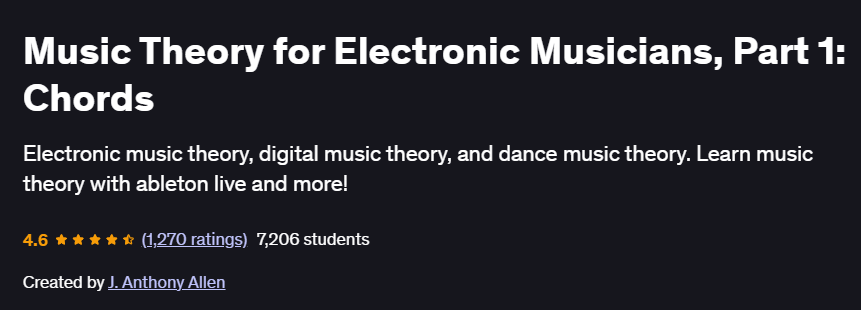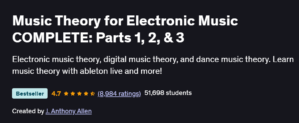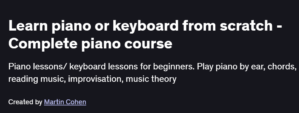What will you learn in Music Theory for Electronic Musicians, Part 1: Chords Course
Improve your tracks by building chords and melodies that work together
Understand and apply minor chords and 7th chords in your productions
Use the circle of fifths and moveable patterns to generate fresh ideas for melodies and basslines
Master the Piano Roll editor: octaves, black-key scales, and finding C/Middle C in your DAW
Build diatonic chord progressions, inversions, and use Roman numeral analysis to stay “in key”
Program Overview
Get certificate
Job Outlook
The average salary for a Music Producer in the U.S. is $61,681 per year
Payscale forecasts stable demand as electronic and pop music production continues to grow under streaming and live-performance trends
Skills in harmony, chord design, and DAW workflow are highly valued for roles in music production, sound design, and track mastering
Specification: Music Theory for Electronic Musicians, Part 1: Chords
|





